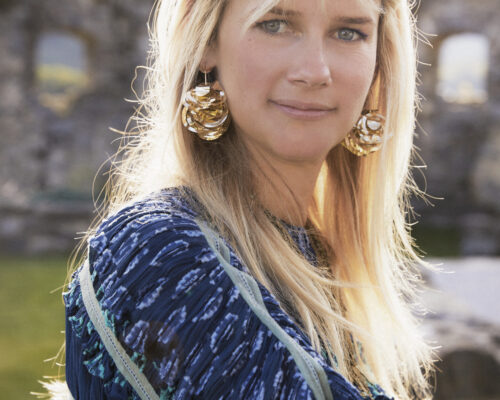Pro Tips on Pitching a Story or Project

As you begin your planning process and goals for 2020, creating a story pitch plan for local, regional and national editors is important. What content do you have or what can you create which will resonate with editors? How do you effectively pitch these ideas? Here are some great tips from top shelter magazine editors as well as a popular Nashville area talk show host.
Craft A Clear, Concise Email
Most editors don’t have time to pick up a phone and chat these days, says House Beautiful Market Editor Carisha Swanson. This is why the composition of your email is critical.
“If you make it easy to search for your email, when we are ready, we can access it quickly,” says Carisha. “Don’t make it too fragrant. “
No one has time for coy. Long-time host of popular Talk of the Town, Meryll Rose, says don’t make them play detective with your pitch. “Be direct and if this is driven by a product or brand sponsorship, be transparent. We’ll figure it out at some point so why frustrate me?”
For an email pitch, Carisha suggested, “say things like, let me know when it is the right time. Ask how to follow up with me. Bump it back to the top if you don’t hear back. And, know when we are working on things.”
Carisha’s pro tip for email pitches— ask for editorial calendars. You can find this more quickly by an online search or requesting from the ad departments. Steele Marcoux, Veranda Editor in Chief, agrees.

“Editors are stretched so thin these days that they cannot be everywhere and know everyone. They need your help!” Steele says, “Especially with things they already have planned. Chances are you have a story idea that will support their existing goals, you just need to know what their goals are.”
Be sure the email pitch is done well in advance says Meryll. Magazines have huge lead times and for television, pitch six to eight weeks in advance. “I’m surprised how many people pitch a week before,” she says.
Know Your Editor, Know Your Outlet
All three pros agree. Don’t waste time by pitching a product or idea which is not suitable for the outlet. It’s hard to believe this still has to be said but it was on their top ideas for pitching so people must still be doing it wrong.

“Familiarize yourself with the brand. Make sure your pitch will make sense for the brand and thus, more likely to be accepted,” Steele explained.
“I get so many pitches from people who have never seen our show and people admit this,” says Meryll. “If you don’t know who you are calling or why, then why should I bother? When someone takes the time to think through what our viewers want to see and they are specific with ‘your viewers are fascinated by this and we can provide it,’ it is so helpful.”
Carisha summarized perfectly, “we are always looking for new content and new ideas. Know your editor or writer’s beat and mostly importantly know the magazine or media outlet’s focus.”
Best Pitch Elements
“For the best pitch, be clear in your story line, share something interesting right away,” says Carisha. “See how we tell stories. For example, you won’t believe this house has this. Find that one niche thing. Share what’s practical or cool about a space that has a takeaway. Highlight what makes your space different.”
Meryll went back to basics with her tips on a good pitch. “Include the who, what, when, where and why. Explain what you see us doing in the segment. Make it sound appealing. Get to the point. We don’t need a term paper but I do love a fact sheet.”
Bonus: How To Not Be Annoying
“Don’t call me and read your news release,” says Meryll. (Yes, you read that right!) “Always ask if this is a good time, don’t just launch into a pitch. Identify yourself and don’t read your press release verbatim! Usually, this is an intern.”
Also, it is annoying for people to pitch via Instagram, Facebook messages and text. Following up with asking if you saw an email is one thing. Actually pitching to an editor via any other means is a bad idea. Carisha stressed, it is not that hard to find someone’s email.
“Final pro tip, be sure to only take on clients and projects you really believe in,” says Steele. “Be picky about your clients. That may sound terrible, but, truly, if you believe in them, that means the world needs to know about them and you will be better able to get their story told.”
Meryll agreed. “You can tell when people are half-hearted with a pitch. A smart producer can tell when you don’t believe in a client.”
TSC Summit has hosted media from publications such as: Bake from Scratch, Better Homes & Gardens, The Cottage Journal, Elle Decor, Garden & Gun, House Beautiful, Martha Stewart Weddings, Real Simple, Southern Living, Southern Lady, Veranda and more…






Leave a Comment